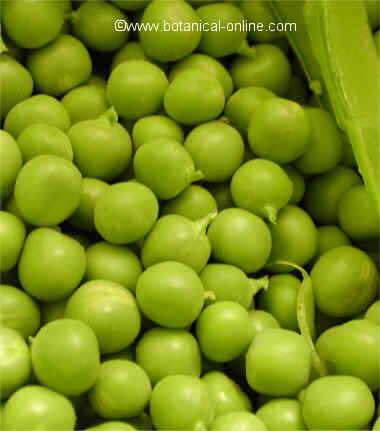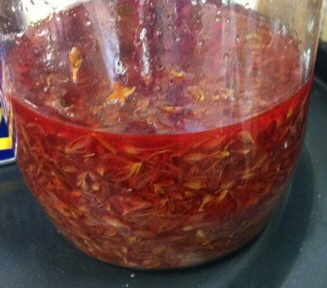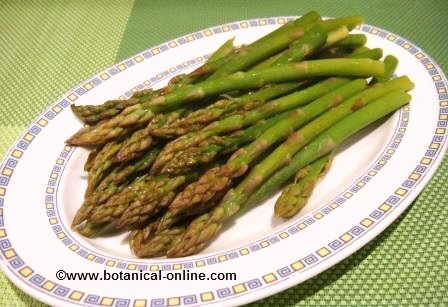Dangers of aluminum in food cans
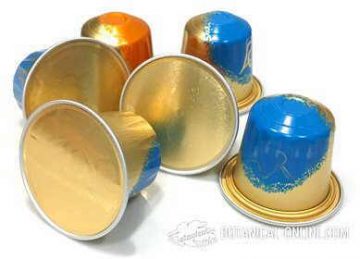
Aluminum and canned food
Aluminum is used to make car parts, machinery, aircraft, electronic devices, kitchen utensils, surgical appliances and utensils, soft drink cans, aluminum foil, deodorants, some cosmetics, etc.
There are also beverages and foods that are wrapped or sold with aluminum, as is the case of coffee capsules, beer cans, etc.
Contents of aluminum in food
All vegetables contain certain amounts of aluminum, since it is the most abundant metal in the earth’s crust, but the content of these foods is very low.
Currently, because of acid rain contaminates water with aluminum and lead, so some ecosystems are richer in this metal. Due to this fact, it is possible that some vegetables may contain aluminum doses higher than usual.
Aluminum dietary sources
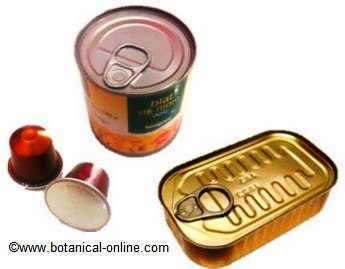
- Tea leaves have a high content of aluminum, and their absorption increases if taken with lemon (citrate increases the absorption of aluminum).
- Processed foods can be richer in aluminum, as is the case of flour, due to the anti-caking additives that can be added.
- The cans and metal containers of canned food, canned fish (tuna, mackerel, anchovies, etc.), soda cans, metal coffee capsules.
Aluminum in cans and aluminum foil
Canned foods may contain, in addition to aluminum, another heavy metal called tin which is part of the protective enamel. The content in tin is very low, but it increases if we keep the food in the tin once it is opened.
The cans and metal containers of canned food, canned fish (tuna, mackerel, anchovies, etc.), cans of soft drinks, and in some metal coffee capsules are made of aluminum. These products are protected by an internal coating that prevents aluminum contamination of the food.
Why should not buy cans in poor condition or with dents?
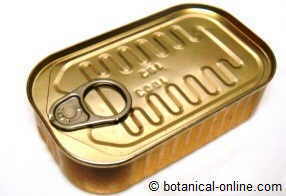
Aluminum is soluble in acid media, so without this coating, some foods such as coffee or colas (which are acidic because they contain carbonic acid, to have bubbles), could erode the can and be very rich in aluminum.
- Damaged or dented cans can transmit a certain amount of aluminum and contaminate the food. For this reason, cans that are damaged can not be sold.
- A study from California State University showed that canned beer, over time, increased its aluminum concentration. This is due to the corrosion of the can suffered by beer. The same study indicates that the passage of aluminum to food canned or wrapped with aluminum foil occurs more slowly when stored in refrigeration. That is, the cans of soda stored in the refrigerator contain less aluminum than if stored at room temperature, for example in a store or pantry that is not cold.
- Higher heavy metal content of coffees prepared with metal capsules.
Does aluminum foil pass aluminum to food?
One study observed that the aluminum foil used to wrap food did not dissolve in most beverages, that is, it did not practically contaminate food. Of course, if used improperly, you can pass aluminum (more temperature than allowed, remains of aluminum foil in food).
Other sources of aluminum
- Cooking acidic foods in aluminum cookware can increase the amount of aluminum in cooked foods.
- Some food additives contain aluminum, such as those added to canned fruits, in beer, and baking products, among others.
- Antacid medications such as aluminum hydroxide are also sources of this metal. The long treatments with these medicines can produce constipation and losses of calcium, reason why it is recommended to these people to realize a diet rich in calcium.
- Enteric-coated aspirins are also rich in aluminum.
Aluminum poisoning
For a long time, aluminum was considered safe for health. Aluminum poisoning manifests with neuronal symptoms, because the brain is the main organ where this metal accumulates. Because it competes with iron to share transferrin, aluminum can cause anemia.
People with Alzheimer’s have a high concentration of aluminum in brain tissue, which at first suggested that this disease could be related to aluminum. Currently, this relationship is discarded.
![]() More information on toxic products in food
More information on toxic products in food

